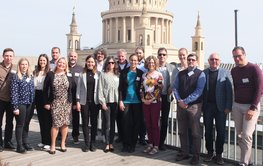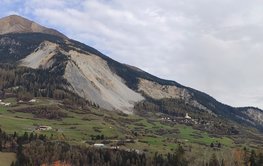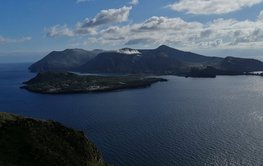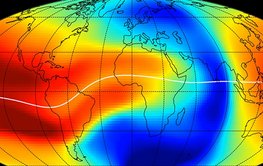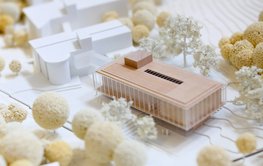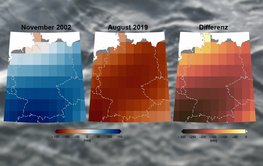Simulation study identifies previously unaccounted particle loss processes. Implications e.g. for satellite hazards, Earth magnetic field studies and atmosphere.
You are a journalist and would like to receive our press releases via E-Mail?
Please send us a message
On 14 June, the new Start-up and Innovation Floor GITA was officially inaugurated on Telegrafenberg – in the presence of the GFZ Board of Trustees and guests from the regional start-up ecosystem.
Come by! On June 17, 2023, the Long Night of the Sciences will take place on Potsdam's Telegrafenberg, among other places. The institutes AIP, AWI, GFZ and PIK located here cordially invite you.
Until now, certain biomarkers, the "protosteroids," have been overlooked as fossil witnesses to primordial life
Launch of the European TRANSGEO project: It investigates how abandoned wells from oil and gas production can be used for geothermal energy.
Interview with Niels Hovius on the impending landslide in Brienz (Switzerland). The mountainside has been moving for a long time, the GFZ has been collecting data on site for years.
Using submarine cables for telecommunications, researchers have been able to monitor low-frequency seismic events related to the awakening of Vulcano Island.
With the help of neural networks, the complexity of the layer around the Earth can be reconstructed much better than before. This is important for satellite navigation, among other things.
New administration and communication centre for the GFZ as successor building to A43: Award-winning architectural designs from the competition can now be seen in the Telegrafenberg Library.
This is shown by analysing data from the GRACE/GRACE-FO satellite missions. Depending on the evaluation method, the results vary considerably.


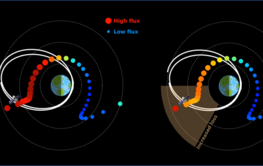
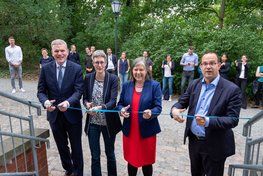
![[Translate to English:] Several hands touch a modelled landscape with "mountains" and "valleys". Contour lines and different colours depending on the altitude are projected onto it.](/fileadmin/_processed_/6/5/csm_Lange_Nacht_der_Wissenschaften_035-min_560a056601.jpeg)
![[Translate to English:] eucaryotes](/fileadmin/_processed_/1/3/csm_ANU_RSES_eukaryote_20230508Community_of_stem_group_eukaryotes_on_microbial_mat_-__056-1024x1024_400d159552.jpeg)
